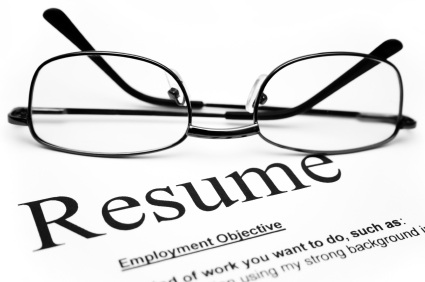Race and Your Resume – Part 1!
If you are like many sales professionals you may be looking for a new position for any number of reasons. If so, you undoubtedly recognize that the resume’ is the window to your qualifications, and even though it has it’s good and bad points as a tool, it is necessary.
That brings us to the notion that the resume is the ‘crow bar’ that opens a crack in the door to give you consideration and, hopefully an interview. Without the resume’ a hiring manager or human resource representative will have no idea of your talents, or your ability to display them. Which prompts the question ‘du jour’, should your resume’ be ‘race neutral’?
What is Race Neutral?
‘Race neutral’ is a term used frequently in education to describe the basis for educational policy that supposedly ignores race as a determining factor. In this case, I am going to use ‘race neutral’ to indicate that your race is not disclosed or detectable. This might mean the ‘scrubbing’ the resume’ or other correspondence of determinants of race.
I know you are not going to ask why ‘race neutral’, but for those who might wonder I point again to the primary objective: Getting in front of the manager for an interview. Once there you will at least be able to begin to showcase your values, your abilities, and the fact that you can work in the employer’s workplace, or any other environment.
I believe that the having a race neutral resume was something that helped me early in my career and has helped many a Black professional. Assuring racial anonymity by means of avoiding references to race, racial affiliations of non-work groups, or activities, was the norm for many professionals of color, but… the world has changed to a large degree. The primary catalyst for this change is the business-networking site LinkedIn.
The “LinkedIn” Effect
LinkedIn is a major force in the job theater globally boasting over 259 million users in more than 200 countries, as of the end of 2014. The networking site has grown exponentially over the last ten years, although it is might be pressed to make money, its impact on the job scene for members is undeniable. Also, once y0u have your coveted sales job, its use as a tool to help you gather information to build relationships is undeniable.
A well-constructed LinkedIn profile is a basic necessity in the sales world, and maybe in most of the business world now. You can find out pertinent information about your future employer, your coveted clients, as well as your competition. You can use it to apply for professional jobs as well as take advantage of its reach to keep in touch with colleagues, follow companies that you admire, and be involved in business interest groups.
The pertinent question is whether you should elect to put a picture in your profile to be viewed by associates, potential customers, potential employers, and anyone else curious about “what the heck” you look like.
If you don’t have a picture in LinkedIn, you stir the question of “why not”? Is it a fair question? No! Fair or not, this question that is probable! Here is why: As with social media, even though LinkedIn is not considered social media, there are always people out there who don’t mean others well. When someone withholds a “simple” picture there may be something amiss. In LinkedIn, without a picture, if you ever ask someone to “link” with you and they are not totally familiar with your name, they may avoid approval, as they may believe you not to be who you are. Should you build a profile on this wonderful tool if you are going to generate suspicion and potential credibility issues by not including a picture? You will have to answer that.
I believe in the power of a properly constructed LinkedIn profile, and in the usefulness of this tool. Racial anonymity can play in your favor, or can play against you if they are looking for a Black sales professional. I think LinkedIn as a tool provides enough benefit and exposure that your will still be an ultimate beneficiary.
As a matter of fact, for many technical, technical sales, as well as other selected professional positions, Black professionals (especially Black females) who have solid credentials are sought out, and even coveted. In those situations, the pictures are “appetizers”. As you guess, this situation is controversial, but deserves discussion. The next couple of topics will show you why.
The Applicant Selection Process – A, B, C, and D (Discard)
Let’s revisit the hiring process. A hiring manager or human resource representative potentially sees hundreds of resume’s to fill one position. Remember the first goal, which is to get in for a personal face-to-face interview. Your charm, skills, and ability to respond to questions and situations will be your tools, but you have to be able to showcase them.
If you follow some simple logic, many of these resumes are going into the ‘D’ stack, as they lack the basic qualifications that were advertised. Some are going into the ‘B’ and ‘C’ stack as they have many of the qualifications, but are unlikely to be contacted, as there appears to be better candidates available.
Then there is the ‘A’ stack. This stack has candidates who meet the basic qualifications, and have some points that create attraction to the reviewer. As a reviewer you start at the top of the ‘A’ Stack and work downward.
Remember, the process of separating into stacks (A, B, C, and D) includes personal input on the part of the manager or HR representative. This area of discretion is a “wild card” for the manager or HR rep. You must end up in the ‘A’ stack, and hopefully at the top of it to get a strong opportunity to be interviewed. I hope you recognize that almost anything can put you in the wrong stack, so don’t give anyone the excuse to put you there.
Something that might influence the stack your resume ends up populating might be affected by some things that are out of your control.
Don’t Miss Part II – Your Resume and Racial Perceptions, Racial Preference, and Racial Prejudice!
Thursday we will examine the effects of the 3Ps, racial perceptions, racial preference, and racial prejudice on the acceptance of your resume. This post will give you valuable information about your resume and how it is accepted. Don’t miss it.
Your comments are always welcome. Feel free to write me at michael.parker@blacksalesjournal.com.
 June 29, 2015
|
Posted by Admin9!
June 29, 2015
|
Posted by Admin9!

 Categories:
Categories:  Tags:
Tags: 

Your Comments